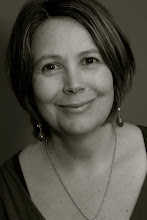Being born bright, curious and skeptical has had it’s drawbacks. It’s been hard to believe and trust people. I know that trusting oneself, and others also comes from having accepting and supporting parents and from a whole lot of needs having been met, of which didn’t necessarily happen for me. But that’s another story. The part that’s been hard for me in trusting people has been the ability to see their fragility behind their power. It started back with the nuns in grade school, it didn’t take a rocket scientist to understand that these were women who traded in sex, family and independence for God, the Pope and collective living with other chaste women. And, they couldn’t wear cool clothes. Did they ever dream of Prada, of wearing read?
This by itself spoke volumes to me, and so when they thought they had some moral lesson to teach me, I was like, “What are you thinking?” I was arrogant I guess, and didn’t think anyone could teach me anything. Also, a little overprotective of my brain, and I wanted to control what people tried to put into it. Imagine that. That’s why I’m always the one to stick up for the kid labeled defiant. I like defiant, I think it shows spunk. I also saw creepy dark sides of these women who could go off on a little kid like there’s no balm in Gilead. One minute telling us Jesus loves us, and the next minute whacking a kid in the head with a book.
What these nuns didn’t know, was that I had other kinds of women in my life, women I wanted to be like. Like my Aunt Esther, who was a WAC in WWII and had traveled a good part of the world. She brought my sisters and I gifts from Thailand, and my mom and my grandma had beautiful things she gave them from the East. When she breezed in to visit my mom and our family, she brought in her own kind of magic. She made my mom happy. She cooked exotic food and lived on her own. She was a working woman, who dated but didn’t need a man or God.
As kids we called her Annie Esther, I didn’t figure out until I was much older that this was a version of Auntie Esther. Annie Esther had a big white cadillac convertible and when she stopped by sometimes she’d give me a ride. She was young and single for a long time, and I wanted to be like her. She had long dark hair, that she’d pull into a ponytail, and big sunglasses and a smile that was huge, and a laugh that was loud. She was real for me in a way that the nuns who wanted to teach me something could never be. When she finally did marry, it was to a man with a daughter my age, and I’ll always remember the hot summer day that she bought us both ice cream cones and took us driving in her convertible. Ice cream got blown into our long hair, onto our faces and we were a mess, Annie Esther just laughed at us.
I will admit, I still struggle with nuns, not trying to put them in a box. I know some nuns who are brilliant and amazing and work hard for peace, but I still can’t help wonder, what would make someone want a religious organization to be their home? It seems lonely, and it seems sad. I also know historically that when women had fewer choices, becoming a nun was a way to have some power, to get educated. To have a life outside of the box of wife and mother. The nuns that I knew growing up didn’t seem like grown ups, maybe that’s it. And when you are growing up and you are looking towards a leader, or a mentor, or someone brave to show the way, you want them to be going in a way you’d want to go.
Subscribe to:
Post Comments (Atom)

No comments:
Post a Comment